Kate Te Morunga is a dedicated and passionate leader with a rich career journey that spans various roles and sectors. Her story is one of resilience, hard work, and an unwavering commitment to her community and cultural identity. Kate’s career began with a series of menial jobs in the UK, where she discovered her knack for public relations and events. This discovery led her to pursue a Bachelor of Hospitality Management, which opened doors to roles in event coordination and management.
Kate’s defining moment came when she realised being Māori was not a hindrance but her superpower. This empowered her to embrace her cultural identity and leverage it to bring unique perspectives to her work. Her involvement in the Provincial Growth Fund and the marae renovation programme are testaments to her dedication to uplifting her community. These projects, particularly the $90 million investment in marae during Covid-19, highlight her commitment to ensuring these vital community hubs continue to serve their purpose.
Balancing her professional life with her role as a mother and community leader, Kate coaches sports, serves on a board of trustees, and actively participates in her community in Wellington. Her journey is marked by memorable wins, such as significant investments in infrastructure and community development, which have had a lasting impact on the lives of many.
Kate’s story is one of finding balance, embracing opportunities, and advocating fearlessly for her beliefs. Her leadership and dedication to her community make her a remarkable figure, inspiring others to follow in her footsteps and make a difference in their own unique ways.
“Work hard. Take opportunities. And be yourself. Be unapologetically Māori because it matters, even in the current climate.”
The six pou of Mata Ārahi Manomano drive the questions we have used to profile Māori & Pacific role models, in the Service sector.
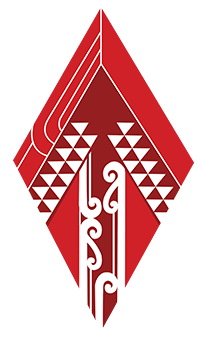
|
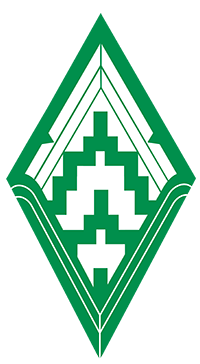
|
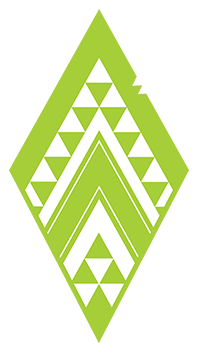
|
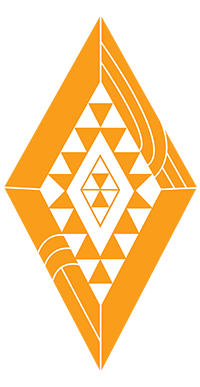
|
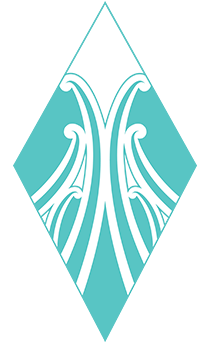
|
|

Representing the levels and forms of aroha that can be found throughout our lives across our many communities. We acknowledge the wide range of obstacles and the journey it takes to overcoming everything that stands in our way to expressing aroha within.
I am the MBIE (Ministry of Business, Innovation and Employment) Comms team manager.
I’m people-centric. I care about people and I care about outcomes for people in communities.
I sit on a leadership team. I have one of those leadership matrices pulled out, and I am one of two people that lead decision-making by beliefs. So, I’m very much belief-based rather than data-based.
I’m always looking out for the underdog. I always want to serve my community in whatever way I can. And when I look for jobs or activities outside of my job, it’s serving a community that I can take part in.
I am very giving; I give my gifts, particularly to my team, my time, and things like that. So those are probably my strengths.
Sometimes my beliefs hinder me somewhat. I’ve got a job that makes me want to get out of bed. It is a positive, but it also can be a little bit of a hindrance sometimes, but yeah, I’m a true believer that your beliefs, your tūpuna walk with you.
Other weaknesses: Time. I don’t have time to do everything I want in the world. So finding space, getting the balance right with fun and work is always a struggle.

Seeking guidance from our kaitiaki Hiwa-i-te-rangi, we take a journey through our different aspirations, goals and dreams. This tohu acknowledges hard work, wisdom, the reach of ones goals and the desire that comes from this mahi.
I went to Europe in my early 20s on a sports trip, and stayed in the UK for two years. One of my jobs was as a PA for a public relations company. I thought, “Oh, I’m good at this!” So when I came home, I was like, “how do I get into events?”
I did a Bachelor of Hospitality Management, and my first job afterwards was at the Duxton Hotel. I then worked for the Law Society and Victoria University before an opportunity came with the Department of Labour.
Three months later, they said, “Right, we’re forming MBIE.” I was part of the team supporting the new CE to go around the motu and bring everyone together from all the different agencies. I’m now celebrating my 13th year here.
I got a chance to work on the Provincial Growth Fund set up in 2017. I got a taste of what it was like with the Beehive; I loved the pace, and I regret I didn’t find that love earlier as it’s not somewhere to go if you have any kind of family because of the long hours.
I am now the manager for the corporate communications and internal comms team. It’s not boring, although now as a people leader with 14 direct reports, I don’t get to do any of the fun stuff anymore.

With adventure comes challenges as well as obstacles to overcome. We stand proud as we overcome these obstacles. This tohu draws inspiration from the Niho Taniwha and Aramoana patterns. We acknowledge reaching our destination and preparing ourselves for the many new adventures ahead.
When I was with the Provincial Development Unit, I was part of an inaugural programme called Mana Whakatipu. It’s a yearly programme run with Rise 25, it was for Māori women at MBIE who have aspirations for leadership.
We had six wananga at a marae in Otaki, and it took me until the third wananga to really get it because it was too “airy-fairy” for me at first. The “tell me what colour you feel when you feel that Kate” type of activities were not my idea of spending time. I could be doing work, and it was stressful.
But then I got it around the third wananga and realised its value. In that cohort, there were 12 of us, and every single one of us moved into the next steps of our careers.
I probably wouldn’t have taken that next step without being on that course and knowing MBIE was investing in having more wahine Māori at the table. Now, I fully support it and always look for other kaimahi to put on this course.

These patterns represent bravery and being strong in the face of adversity. We strive to be persistent and positively challenge anything that threatens to alter, restrict, and put a barrier in the way of our desired pathway.
I have always been a hard worker and have always taken every opportunity that’s come my way. I’ve never said no to an opportunity as long as it aligns with my beliefs.
For me, it was all about realising that being Māori wasn’t what was holding me back. Instead, being Māori was my superpower, bringing a different perspective to things. I always thought it was a hindrance and that I could never fit into a Pākehā world because of how I looked. But then I realised they wanted us at the table and valued our opinions.
Being part of the Provincial Growth Fund was significant. Part of that was giving the marae renovation programme $90 million because we saw their importance during Covid and their place in communities. We unapologetically gave money to marae to ensure they could serve our communities, which is what they have always been there for. That was quite a defining moment.

Here we are drawing inspiration from the Pūhoro pattern. The pūhoro is used here to represent the strength, speed and agility needed to move forward and accomplish ones goals.
The challenge is finding the work-life balance to be the best mother I can be and giving back to my community.
I coach a lot of sports, want to be a present parent on the board of trustees, and help out in various ways. The place my son and I have found in our little community in Wellington is really important for his identity. So for me, the challenge is getting the right balance.
One significant moment, being a child of the North, was the amount of money the Provincial Growth Fund gave to that area.
One memorable event in Northland was an announcement about $10 million of roading projects, and the marae stood up, cheering and dancing. I asked the regional advisor why they were so excited. He said, “The roads are metal roads. They can get their cars without the cost of wear and tear on their vehicles. They can send their kids off and know they’ll get to school safely. That’s why they’re cheering.”
Before that, I just saw $10 million for a piece of road being sealed. We look at things differently as city folk.
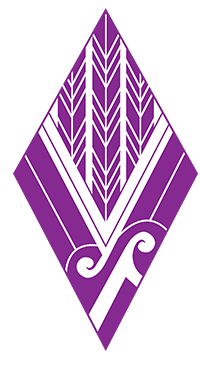
Success, best mentioned in the whakatauki “Tūwhitia te hopo, mairangatia te angitū!” Feel the fear and do it anyway!
My biggest challenge would probably be to celebrate my wins. I need to reflect more on where I’ve come from and what I’ve had to overcome to get here. I need to keep reminding myself of that because often I find I keep pushing to want better instead of celebrating what I have achieved.
Memorable wins? Well, last month I was presented with a bronze award. In my first year as an agent, I was given the “Rising Star” award. In the past 12 months, if a new agent is the top agent in the central region, they get an award for “Rising Star.”
Funny thing is, I felt defeated in my first year because I wasn’t where I thought I should be. That’s just how I am, probably too hard on myself. So to get that award was good for me. It just reminded me that I am capable, you know? And bringing it home to my daughters, that was probably the most memorable thing. I had started it because I wanted to show my children what they’re capable of when they have to face struggles. I just want them to remember if I can do anything, they can.